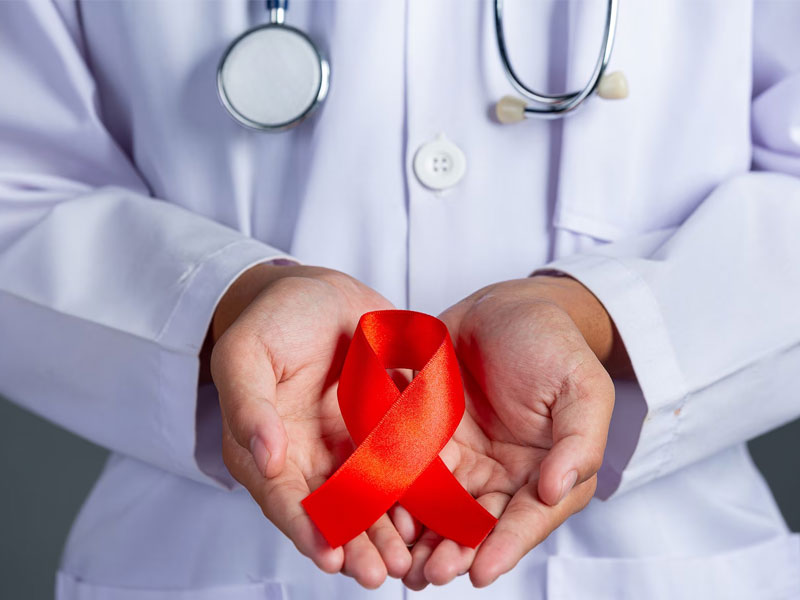



Hospice care is a type of medical care that focuses on providing comfort and support to individuals nearing the end of their lives. This care aims to improve the quality of life for those who are facing a terminal illness, such as HIV or AIDS. Hospice care is provided by a team of healthcare professionals, including doctors, nurses, and social workers, who work together to provide comprehensive care for the patient and their family.
When it comes to Hospice care for HIV or AIDS patients, it’s important to understand the eligibility criteria. These criteria are designed to ensure that Hospice care is provided to those who will benefit the most from it. In general, patients with HIV or AIDS may be eligible for Hospice care if they have been diagnosed with a terminal illness and have a life expectancy of six months or less. However, the criteria for Hospice care are not limited to just a patient’s medical condition. Eligibility also takes into account the patient’s emotional, psychological and social well-being.
It’s important to note that choosing Hospice care is a personal decision and it’s important to have open and honest conversations with your healthcare provider about your options. Hospice care can be a valuable resource for individuals living with HIV or AIDS, helping them to maintain their quality of life and providing support for both the patient and their loved ones.
When it comes to determining eligibility for Hospice care for patients with HIV or AIDS, there are several criteria that must be met. These criteria are designed to ensure that Hospice care is provided to those who will benefit the most from it.
Hospice eligibility guidelines for patients with end-stage HIV/AIDS include criteria such as a terminal illness and a life expectancy of six months or less, as well as a patient’s physical, emotional, and social well-being. To be considered for hospice care, a patient must have a CD4+ count of less than 25 cells/mm3 or persistent viral load of over 100,000 copies/ml, plus one of the specific conditions listed, and a decreased performance status of less than 50 as measured by the Karnofsky Performance Status (KPS) scale. Additional supporting documentation, such as chronic persistent diarrhea for one year, persistent serum albumin of less than 2.5, concomitant active substance abuse, age over 50, absence of certain types of antiretroviral, chemotherapeutic and prophylactic drug therapy, advanced AIDS dementia complex, toxoplasmosis, congestive heart failure, and others can also be considered. It’s important to note that some patients who do not meet the above guidelines may still be appropriate for hospice care because of other comorbidities or rapid decline and may be approved on an individual consideration basis.
Hospice and palliative care are important for patients with HIV or AIDS because they provide comprehensive care and support during the end-of-life journey. These forms of care focus on improving the quality of life for patients and their families by addressing the physical, emotional, and spiritual needs of the patient.
Hospice care, in particular, provides a team of healthcare professionals, including doctors, nurses, and social workers, who work together to provide care for the patient and their family. This team provides medical care, symptom management, and emotional and spiritual support for the patient, as well as support for the patient’s family. Palliative care, on the other hand, is a specialized medical care that focuses on improving the quality of life for patients who have a serious illness. It is given along with the patient’s ongoing treatment and it focuses on pain and symptom management, emotional support, and end-of-life care.
HIV/AIDS is a chronic illness, and as such, the patient may live with the illness for a long time. Hospice and palliative care provide an important service to patients with HIV/AIDS by helping to manage the symptoms of the disease, providing emotional and spiritual support, and assisting the patient and their family with end-of-life care. These services can help to improve the quality of life for patients with HIV or AIDS, and provide support for the patient’s family during this difficult time.
For patients with HIV or AIDS, it’s important to have access to accurate information and support. There are a number of resources available for patients and their families, including:
It’s important to note that these resources can be used by patients and their families to help them make informed decisions about their care and treatment options, as well as to provide emotional and practical support throughout the end-of-life journey. By utilizing these resources, patients with HIV or AIDS can receive the care and support they need to maintain their quality of life during the end-of-life journey.

Meet Matthew, a healthcare professional with over 10 of experience in the medical field. With a passion for improving end-of-life care, Matthew brings a wealth of knowledge and expertise to Hospice Report. Matthew has worked in a number of strategic marketing roles at some of the largest healthcare networks globally and brings a unique perspective on the future of patient care.

Copyright 2023 Hospice Report, All Rights Reserved. | Privacy Policy